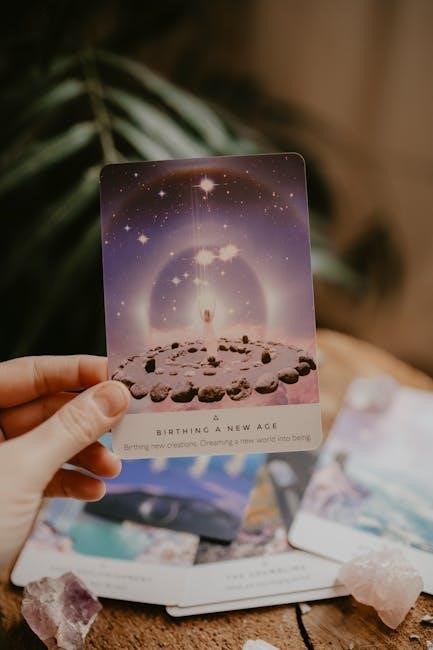Crossword clues are hints that guide solvers to fill in the correct answers in a puzzle grid. They challenge problem-solving skills and vocabulary knowledge.
Clues can be straightforward or cryptic, requiring solvers to think creatively. They often involve wordplay, anagrams, or clever interpretations, making crosswords both fun and educational.
Understanding clues is essential for mastering crosswords, as they provide the framework for solving the puzzle. Crossword solvers and tools can aid when stuck on a clue.
Regular practice and learning clue patterns improve solving skills over time. Crosswords are a great way to expand vocabulary and sharpen mental agility.
1.1 Understanding the Basics of Crossword Puzzles
Crossword puzzles are word games featuring a grid of black and white squares, where solvers fill in words or phrases based on clues.
The grid is divided into Across (horizontal) and Down (vertical) entries, with clues provided for each direction.
Clues can be straightforward definitions or more complex, involving wordplay like anagrams or puns.
Solving crosswords requires a mix of vocabulary, logic, and pattern recognition.
Beginners often start with shorter words and use tools like crossword solvers to overcome challenges.
Regular practice helps improve skills, as solvers learn to recognize common clue patterns and word associations.
Crosswords are a popular mental exercise, offering both entertainment and cognitive benefits.
1.2 The Role of Clues in Solving Crosswords
Clues are essential for guiding solvers through crossword puzzles, providing hints that lead to the correct answers.
They can be straightforward definitions or more complex, requiring solvers to think creatively.
Clues often involve wordplay, such as anagrams, puns, or double meanings, which challenge problem-solving skills.
For difficult clues, tools like crossword solvers can help by suggesting possible answers based on the clue and grid patterns.
Understanding clue structures, such as identifying the clue type (definition, anagram, or cryptic), improves solving efficiency.
Clues also help solvers build vocabulary and sharpen mental agility, making crosswords both educational and entertaining.
Regular practice and learning clue patterns enhance overall crossword-solving abilities over time.

Decoding “Your Guide to a Better Future Site” Clue
The clue “Your guide to a better future site” was last seen in The Wall Street Journal quick crossword. The possible answer is “COLLEGE SUCCESS,” fitting the 14-letter pattern.
This solution aligns with the theme of personal development and education, making it a relevant and logical fit for the clue.
2.1 Breaking Down the Clue Structure
The clue “Your guide to a better future site” is structured to lead solvers to the answer through a combination of literal and interpretative elements.
“Your guide” suggests a resource or tool, while “to a better future” implies personal development or growth.
The word “site” indicates a physical or metaphorical location, directing solvers to think of a place or concept associated with these themes.
This structure requires solvers to interpret the clue creatively, connecting the ideas of guidance, improvement, and location.
The answer often involves wordplay or a clever twist, making it a challenging yet rewarding puzzle to solve.

2.2 Possible Answers and Their Relevance
Possible answers to the clue “Your guide to a better future site” include websites like LinkedIn, Coursera, or Indeed, which aid in career development and skill enhancement.
LinkedIn serves as a professional networking platform, helping users advance their careers and connect with industry professionals.
Coursera offers online courses for learning new skills, contributing to personal and professional growth.
Indeed is a job search platform that assists individuals in finding employment opportunities, aligning with the idea of a better future.
These sites act as guides by providing resources and tools necessary for improving one’s future prospects.
The relevance of these answers lies in their alignment with the clue’s themes of guidance, improvement, and site-specific resources.

Types of Crossword Clues
Crossword clues can be definition-based, anagram-based, or cryptic, each requiring different solving strategies. Definition clues provide direct meanings, while anagram clues involve rearranging letters. Cryptic clues use wordplay or puns.
3.1 Definition Clues

Definition clues are the most straightforward type of crossword clues. They provide a clear description of the word or phrase to be filled in the grid. These clues rely on direct meanings, requiring solvers to think of synonyms or explanations. For example, “Your guide to a better future site” could hint at a word like “WEBSITE,” as it relates to guiding someone toward improvement. Definition clues are often used in quick crosswords and are great for beginners, as they focus on vocabulary knowledge rather than complex wordplay. They serve as the foundation for understanding more intricate clue types later on.
3.2 Anagram Clues

Anagram clues require solvers to rearrange letters from a given phrase or word to form the correct answer. These clues often include hints like “rearranged” or “jumbled” to indicate the anagram. For example, “listen” can become “silent.” Anagram clues challenge solvers to think creatively about letter combinations. Tools like anagram solvers can help when stuck, but skilled solvers often enjoy the puzzle of rearranging letters themselves. Anagrams add a fun and tricky element to crosswords, testing both vocabulary and problem-solving skills. They are a popular clue type in many crossword puzzles, including those found in the NY Times and Daily Celebrity crosswords.

3.3 Cryptic Clues
Cryptic clues are intricate hints that lead to a single answer through specific rules, often involving wordplay. They typically combine definitions with clever twists like anagrams, reversals, or hidden words. For example, “Flower that’s also a girl’s name” might hint at “Lily.” These clues require solvers to decipher both the literal and figurative meanings. Cryptic crosswords are especially popular in British puzzles and challenge solvers to think creatively. They often feature in publications like The Wall Street Journal and The Telegraph, making them a favorite among experienced crossword enthusiasts. Mastering cryptic clues enhances problem-solving skills and vocabulary retention, adding depth to the crossword-solving experience.
Tips for Solving Crossword Clues
Start with easy clues, use word patterns, and leverage online tools. Crossword solvers and anagram tools can help when stuck. Practice regularly to improve skills and confidence.
4.1 Using Word Length and Patterns
Utilizing word length and patterns is a powerful strategy for solving crossword clues. By identifying the number of letters required for an answer, solvers can narrow down possibilities. Patterns, such as vowels and consonants placement, also provide clues. For example, if the clue “Your guide to a better future site” is 20 letters, breaking it into segments like “your guide” (8 letters) and “to a better future site” (12 letters) helps. Online tools often allow filtering by word length, making it easier to find matches. This method reduces guesswork and streamlines the solving process, especially for complex or themed crosswords.
4.2 Leveraging Crossword Solver Tools
Crossword solver tools are invaluable for tackling challenging clues like “your guide to a better future site.” These tools allow users to input clues and letter patterns, generating potential answers instantly. For example, entering the clue and specifying the answer length can narrow down possibilities effectively. Many solvers also offer advanced features, such as filtering by word length or recognizing common answer patterns. This makes it easier to identify the most likely solution. While these tools can’t replace skill-building, they act as a helpful guide, especially for newcomers or when stuck on a tricky clue. They enhance the solving experience without undermining the learning process.

Popular Crossword Puzzle Platforms
Explore popular crossword platforms like NY Times Crossword and Daily Celebrity Crossword for engaging puzzles. These sites offer daily challenges and unique themes, attracting millions of solvers worldwide.
5.1 NY Times Crossword
The NY Times Crossword is a gold standard for puzzle enthusiasts, offering daily challenges that cater to both beginners and seasoned solvers. Known for its engaging themes and clever clues, it provides a platform to test vocabulary and logical thinking. The crossword features a user-friendly interface, allowing solvers to track progress and access archives. Its educational value lies in expanding vocabulary and sharpening problem-solving skills. With a mix of straightforward and cryptic clues, it remains a popular choice for those seeking mental stimulation. The NY Times Crossword is widely regarded as a must-try for anyone passionate about word games and intellectual challenges.
5.2 Daily Celebrity Crossword
Daily Celebrity Crossword is a popular choice among puzzle enthusiasts, offering a fun and engaging way to challenge the mind. It features a variety of clues, often centered around pop culture, movies, TV shows, and music, making it appealing to a wide audience. The crossword is designed to be accessible to solvers of all skill levels, with a mix of straightforward and clever clues. Regular updates ensure fresh content, keeping the puzzles dynamic and exciting. Solving Daily Celebrity Crossword not only enhances vocabulary but also sharpens problem-solving skills, making it a great tool for mental stimulation and entertainment. Its user-friendly format adds to its appeal, making it a go-to for crossword lovers.
Strategies for Building Crossword Skills
To improve crossword skills, practice regularly, use crossword solvers for tough clues, and analyze patterns. Learning from mistakes enhances problem-solving abilities and expands vocabulary effectively.
6.1 Starting with Easy Clues
Starting with easy clues is a great way to build momentum and confidence when solving crosswords. Easy clues often relate to general knowledge or common phrases, making them more accessible.
By tackling simpler clues first, solvers can quickly fill in parts of the grid, reducing the overall complexity of the puzzle. This approach also helps identify patterns and common word lengths.
Using crossword solver tools can assist in identifying easy clues, especially when stuck. Focusing on these clues sharpens problem-solving skills and improves vocabulary over time.
Regular practice with easy clues lays a strong foundation for tackling more challenging puzzles in the future. It’s an effective strategy for both beginners and experienced solvers alike.
6.2 Practicing Regularly
Regular practice is key to mastering crossword puzzles and improving problem-solving skills. Consistent practice helps build familiarity with clue structures and common patterns.
Setting aside time each day to solve crosswords, even for a few minutes, enhances vocabulary and sharpens mental agility. Using tools like crossword solvers can aid in understanding tricky clues.
Tracking progress and revisiting challenging clues fosters a deeper understanding of how clues are constructed. Over time, regular practice reduces reliance on aids, boosting confidence and speed.
Incorporating practice into a daily routine makes solving crosswords more enjoyable and rewarding, ultimately leading to greater proficiency in tackling even the toughest puzzles.
Common Crossword Answer Patterns
Crossword answers often follow predictable patterns, such as word repetition, theme-based clues, or common prefixes/suffixes. Recognizing these patterns can simplify solving puzzles and improve efficiency.
7.1 Frequently Used Words
Frequently used words in crosswords often include short, common terms like “the,” “and,” “that,” and “of.” These words are versatile and fit into many puzzle grids.
In the context of “your guide to a better future site,” common words like “site,” “guide,” or “future” often appear as answers or parts of clues.
Solvers should look for these high-frequency words, as they can help fill in gaps and reveal larger puzzle themes.
Additionally, words like “think,” “okay,” or “learn” frequently appear in clues related to personal growth or improvement, making them valuable for this topic.
Recognizing these patterns can significantly speed up the solving process and improve overall crossword skills.
7.2 Recognizing Themes
Recognizing themes in crossword puzzles is crucial for solving clues effectively. Many crosswords revolve around specific topics, such as movies, literature, or self-improvement.
For the clue “your guide to a better future site,” the theme likely centers on personal growth or career development.
Common themes include education, technology, or motivational concepts, with words like “site,” “guide,” or “future” appearing frequently.
Identifying the overarching theme helps solvers connect clues and fill in answers more efficiently.
Themes also provide context, making it easier to guess unfamiliar words by linking them to the puzzle’s central idea.
By recognizing themes, solvers can approach clues with a clearer mindset, improving both speed and accuracy.
This skill is especially valuable for competitive solvers aiming to master challenging puzzles.

Final Thoughts
Mastering crossword clues like “your guide to a better future site” requires practice, patience, and a strategic approach. By recognizing themes and leveraging tools, solvers can enhance their skills;
Crosswords are not just puzzles; they offer mental stimulation and a way to expand knowledge. Regular practice fosters problem-solving abilities and vocabulary growth.
Embrace challenges, use resources wisely, and enjoy the journey of becoming a skilled crossword solver. The satisfaction of cracking tough clues makes the effort worthwhile.